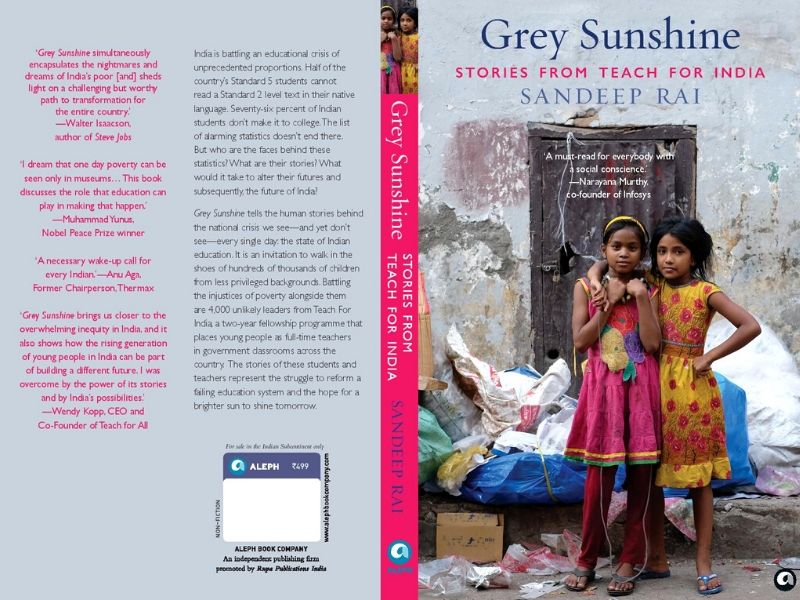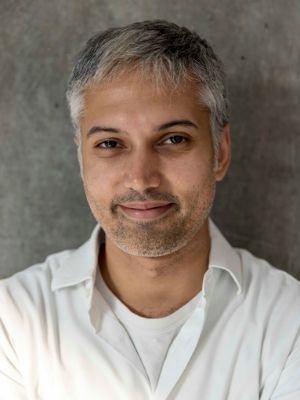Interview with TFI’s Sandeep Rai, author, Grey Sunshine

Teach For India (TFI, estb.2009) is a non-profit organisation that is a part of the global ‘Teach For All’ network. With presence in seven cities across India – Mumbai, Pune, New Delhi, Chennai, Ahmedabad, Bengaluru and Hyderabad – TFI has been espousing quality education for every child in the country. Led by Shaheen Mistri, TFI offers a unique fellowship to college graduates and working professionals by recruiting them as full-time teachers in low income schools for two years. Striving to address educational inequity in the country, TFI has reached 38,000 low-income children and recruited 4000 fellows in its decade long service to the community. Commemorating its decennial anniversary, TFI recently launched a book ‘Grey Sunshine’ which encapsulates its milestones through inspiring stories from the community. The book is authored by Sandeep Rai, chief of city operations at Teach For India. Sandeep, who has played a critical role in growing and scaling the TFI movement in India, served as a Teach For America corps member in Washington DC prior to joining the India arm.
 In conversation with EducationWorld’s Dipta Joshi, Sandeep recounts the 120 interviews conducted with community members that shaped the outcome of the book.
In conversation with EducationWorld’s Dipta Joshi, Sandeep recounts the 120 interviews conducted with community members that shaped the outcome of the book.
Explain the title, ‘Grey Sunshine’.
Working with poverty in a country that has 320 million children, of which 76 percent are destined to drop out before grade ten and 53 percent grade five children unable to read a grade two text is tough. Underlying all of these statistics are human faces, stories of people who are facing staggering levels of inequity and oppression. Over the past decade, TFI’s fellows and alumni have seen progress across classrooms and schools that tells us poverty need not dictate destiny. We’ve seen glimmers of sunshine and yet we have such a long way to go that our progress will always be accompanied by setbacks. For India’s poor the sunshine seems checkered with ‘greyness’.
What is the solution to the existing educational inequity?
Over the next decade, we need to ensure two things happen: One, we need to fuel leadership and two, we need to ensure that leadership has the humility and wisdom to work in partnership with all the stakeholders in this system. If we can do that, the resulting movement will flood the country with examples of what’s possible and also change the conversation – from ‘if’ to ‘how.’ We have to recognise that too few people in India – and across the world – believe in the potential of children from low-income communities to come out of poverty. Changing the conversation means that we shift that reality and lead people to ask – how do we make this happen for every single child?
Surrounded by all this ‘greyness’ what gives you hope?
I’ve watched more than 4000 people complete the TFI fellowship and 70 percent of them continue to remain in education. Over the past ten years, more than 100,000 have applied to be a part of it. Together, those numbers give me hope. They tell me that we have a country that wants change – and a country that’s willing to do something about it.
Also read: TFI voices















Add comment